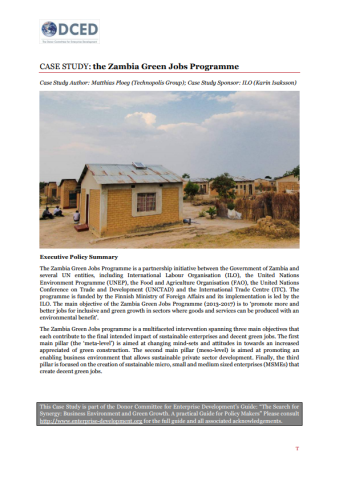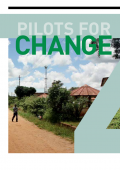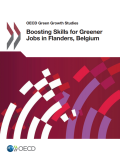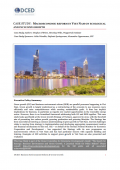Browse by:
Type
Sector
Country
- Afghanistan (1)
- Albania (1)
- Antigua and Barbuda (2)
- Argentina (1)
- Australia (4)
- Austria (3)
- Bahamas (3)
- Bahrain (2)
- Bangladesh (6)
- Barbados (2)
- Belgium (2)
- Belize (5)
- Benin (3)
- Bhutan (4)
- Bolivia (3)
- Bosnia and Herzegovina (1)
- Botswana (5)
- Brazil (14)
- Bulgaria (1)
- Burkina Faso (1)
- Cabo Verde (2)
- Cambodia (8)
- Cameroon (4)
- Canada (24)
- Central African Republic (1)
- Chad (1)
- Chile (3)
- China (27)
- Colombia (10)
- Congo (2)
- Cook Islands (5)
- Costa Rica (12)
- Cuba (1)
- Cyprus (1)
- Czech Republic (3)
- Democratic Republic of the Congo (3)
- Denmark (8)
- Dominican Republic (2)
- Ecuador (5)
- Egypt (3)
- El Salvador (1)
- Equatorial Guinea (1)
- Ethiopia (8)
- Federated States of Micronesia (7)
- Fiji (8)
- Finland (9)
- France (9)
- Gabon (1)
- Gambia (2)
- Georgia (2)
- Germany (10)
- Ghana (10)
- Global (1)
- Greece (2)
- Grenada (2)
- Guatemala (1)
- Guyana (1)
- Haiti (3)
- Honduras (3)
- Hungary (2)
- Iceland (4)
- India (31)
- Indonesia (27)
- Iran (1)
- Ireland (2)
- Italy (11)
- Jamaica (3)
- Japan (11)
- Jordan (5)
- Kazakhstan (5)
- Kenya (20)
- Kiribati (5)
- Kosovo * (1)
- Kyrgyzstan (4)
- Lao (7)
- Latvia (1)
- Lebanon (2)
- Lesotho (1)
- Liberia (2)
- Madagascar (6)
- Malawi (3)
- Malaysia (7)
- Maldives (7)
- Mali (4)
- Marshall Islands (6)
- Mauritania (2)
- Mauritius (3)
- Mexico (13)
- Moldova (1)
- Mongolia (7)
- Montenegro (2)
- Morocco (6)
- Mozambique (5)
- Myanmar (8)
- Namibia (4)
- Nauru (4)
- Nepal (12)
- Netherlands (10)
- New Zealand (5)
- Niger (1)
- Nigeria (3)
- Niue (6)
- North Macedonia (1)
- Norway (8)
- Pakistan (4)
- Palau (5)
- Papua New Guinea (6)
- Peru (7)
- Philippines (22)
- Portugal (1)
- Qatar (1)
- Republic of Korea (14)
- Republic of Moldova (1)
- Romania (2)
- Rwanda (3)
- Saint Kitts and Nevis (3)
- Saint Lucia (8)
- Saint Vincent and the Grenadines (1)
- Samoa (9)
- Saudi Arabia (1)
- Senegal (5)
- Serbia (2)
- Seychelles (1)
- Sierra Leone (3)
- Singapore (2)
- Slovakia (1)
- Slovenia (1)
- Solomon Islands (5)
- South Africa (10)
- Spain (2)
- Sri Lanka (7)
- Sudan (1)
- Suriname (4)
- Sweden (9)
- Switzerland (2)
- Tajikistan (3)
- Tanzania (11)
- Thailand (13)
- Timor-Leste (4)
- Togo (1)
- Tonga (2)
- Trinidad and Tobago (7)
- Tunisia (4)
- Türkiye (1)
- Turkmenistan (2)
- Tuvalu (4)
- Uganda (14)
- Ukraine (4)
- United Arab Emirates (1)
- United Kingdom of Great Britain and Northern Ireland (15)
- United States of America (24)
- Uruguay (1)
- Uzbekistan (7)
- Vanuatu (8)
- Viet Nam (16)
- Zambia (6)
- Zimbabwe (3)
Region
Theme
- Climate Change (249)
- Natural Capital (203)
- Development (120)
- Institutions and Governance (94)
- Indicators and Measurement (89)
- Circular Economy (75)
- Cities (73)
- Infrastructure (69)
- Risk and Resilience (53)
- Technology and Innovation (37)
- Consumption (31)
- Investment (30)
- Poverty and Equity (29)
- Standards and Regulations (28)
- Gender (26)
- Market Mechanisms (23)
- COVID-19 (20)
- Jobs (20)
- Fiscal Instruments (18)
- Trade and Supply Chains (15)
- Health (9)
- Government Procurement (8)
- Sustainable, Green, and Social Bonds (3)

The main objective of the Zambia Green Jobs Programme (2013-2017) is to ‘promote more and better jobs for inclusive and green growth in sectors where goods and services can be produced with an environmental benefit’. The Zambia Green Jobs programme is a multifaceted intervention spanning three main objectives that each contribute to the final intended impact of sustainable enterprises and decent green jobs. The first main pillar (the ‘meta-level’) is aimed at changing mind-sets and attitudes in towards an increased appreciated of green construction. The second main pillar (meso-level) is aimed at promoting an enabling business environment that allows sustainable private sector development. Finally, the third pillar is focused on the creation of sustainable micro, small and medium sized enterprises (MSMEs) that create decent green jobs.
Related Case Studies


The transition to a low-carbon, resource efficient and green economy can only be made by developing the right skills, knowledge, and competencies. Such skills can be defined as “the knowledge, abilities, values and attitudes needed to live in, develop and support a sustainable and resource-efficient society”. In countries that rely...

